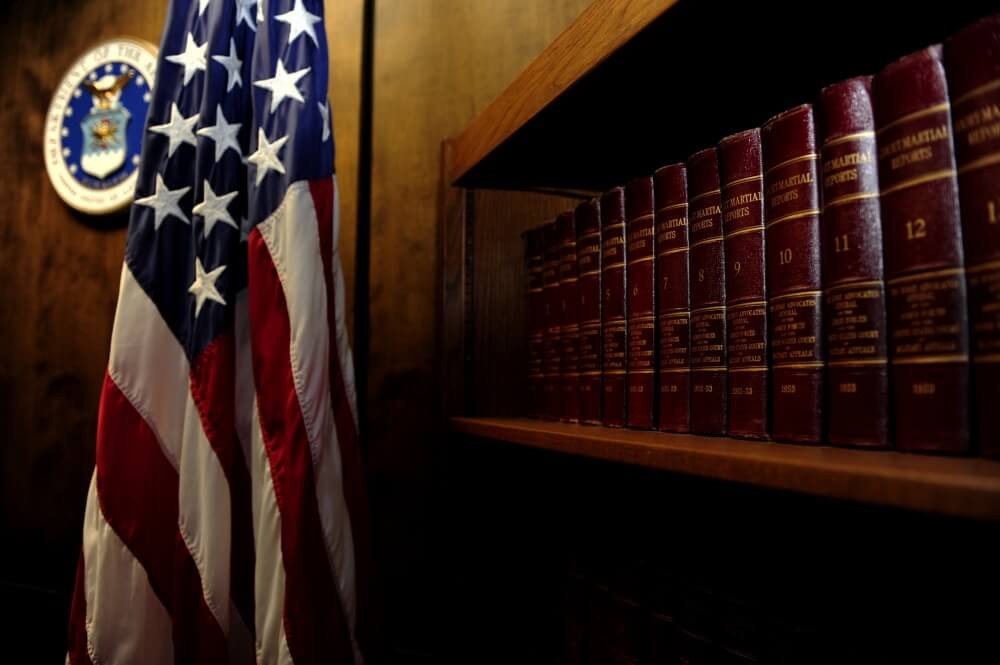
The Servicemembers Civil Relief Act (SCRA) is a benefit every service member should know about. You took the oath to support and defend the Constitution against all enemies. One of the perks for bearing that true faith and allegiance is getting some financial relief while you serve. That’s where the SCRA comes in.
The Servicemembers Civil Relief Act (SCRA) is a federal law that gives legal protections and financial benefits to active duty service members. The SCRA includes protections for things like credit and mortgage interest rates, eviction, foreclosure, and income tax payments.
When I’m coaching service members or giving a financial briefing, questions about the relief act come up all the time. Often people have heard of it or at least a couple of its protections, but usually, people don’t know all of the benefits they’re afforded under the Act. Here’s what every service member should know about the SCRA.
What is the Servicemembers Civil Relief Act – SCRA?
What was once called the Soldiers’ and Sailors’ Civil Relief Act was revised, improved, and enacted as the SCRA in 2003. The SCRA’s purpose is to keep members of the armed forces fully focused on “the defense needs of the Nation” by easing your financial burdens.
The SCRA provides civil relief while you’re serving on active duty. It covers credit card and mortgage interest rate caps. It also includes default judgments, income tax payments, and civil judicial proceedings.
What Does the SCRA Cover?
The most popular SCRA benefit is the 6% interest rate cap on debt incurred before joining the military. If you’ve been in the military for a minute, you’ve probably had the finance brief on it. But there are many other benefits the federal relief act covers.
SCRA Benefits and Protections
Rights under the SCRA are usually implemented by the service member or, in some cases, the spouse. Here’s what the benefits and protections for the Servicemembers Civil Relief Act are:
Interest Rate Cap
The SCRA limits the interest of debt incurred before the start of active-duty service to 6%. Creditors must also forgive interest higher than 6% while a service member is in the military. If it’s for a mortgage, it extends to one year after you leave service. The interest rate cap is available for credit cards, mortgages, and various loans like car and student loans.
Foreclosure Protection
If you bought a home before military service, no one can either sell, foreclose, or seize the property without a court order. That allows for a person’s military service to be taken into consideration in the situation. This protection applies to states that allow nonjudicial foreclosures. Nonjudicial foreclosures are foreclosures that don’t require a court order to foreclose on a home.
Eviction Protection
When renting your primary home, landlords cannot evict you without a court order. Your military service needs to be considered first, except in the case where your rent is more than $4,089.62 for 2021.
Default judgments
Under this protection, a court cannot enter a default judgment on a service member without appointing an attorney to represent the service member’s interests. If they are absent due to military service, a delay or stay of 90 days or more may be granted.
Auto and Apartment Lease Termination
This protection is used frequently. It allows you to end an apartment, home, car, or truck lease when you join the military. To use the SCRA with an apartment or home lease, you must give 30-days notice.
If you PCS (Permanent Change of Station) or if you deploy, you can end a vehicle or house lease. For an auto lease, you must be deployed more than 180 days, but for housing leases, the requirement is 90 days or more.
Benefits for Spouses and Dependents
SCRA benefits apply to military spouses in two ways: joint accounts and survivorship. The account must be a joint account for the spouse to be eligible for SCRA. For example, to receive the 6% interest rate reduction, the service member must be on the account with the spouse. If the service member is not on the account with the spouse, then there will be no change to the interest rate
Under survivorship, if a service member dies during military service, the spouse may end a lease during the year following the service member’s death.
Military Spouse Residency Relief Act – MSRRA
Another benefit for military spouses is the Military Spouse Residency Act. The MSRRA is an amendment to the SCRA that protects residency, voting, and taxes for military spouses. It’s much-needed protection for spouses of service members. These spouse protections make it easier to plan for and predict self-employment taxes, business and professional license applications, and voter registration. The MSRRA offers protection for:
- Home of record – Spouses can choose to use (or not to use) the same home of record (HOR)/residence as the service member for income tax purposes.
- Voting rights – If you PCS to a new state that’s not your state of legal residence, the spouse remains free of any residency requirements to vote at their HOR.
- Residency – New spouses can claim residency with the service member immediately, no matter the date of the marriage.
Keep in mind all of these benefits and protections are to affirm civil rights and relieve civil pressure, not criminal affairs like a DUI. If there’s any question on how SCRA can help, it’s essential to check in with your military legal offices. You can find a list of installation legal offices using Military OneSource installation search tool.
Read more about benefits: How to Use Your TSP
Who is Eligibility Under the SCRA?
Since the federal law is meant to help those serving in the armed forces, you have to be currently serving on active duty to use the benefits. There are also some eligibility and other requirements for the SCRA.
Eligibility for SCRA
All active-duty members from all five branches are eligible. Yep, every soldier, sailor, airmen, Marine, and even Coasties are qualified. In some situations, military spouses and dependents are as well.
Service members are not the only active-duty members of the armed forces. Public Health Service and National Oceanic and Atmospheric Administration officers are also eligible for protection. Citizens who are serving in a military capacity with U.S. allied forces are also protected while they serve.
Servicemembers Civil Relief Act – SCRA Requirements
The main requirement to receive SCRA protection is that you’re “materially affected” by your military service. Materially affected means that your military service has, in some way, impacted your ability to make payments or fulfill your obligations. The best way to determine that is to get advice from your installation legal service office. Once you consult them, they’ll be able to advise you on your situation.
Required Documentation
The number one document you need is an SCRA Certificate. An SCRA Certificate is a document that proves a person is on active-duty status. The Department of Defense has a system to certify your status and produce a certificate, the Defense Manpower Data Center (DMDC). It’s to help financial service providers determine a person’s duty status on any date.

Other documentation required depends on the SCRA benefits protection you’re seeking. In most cases, you’ll need a copy of your orders.
How to Request SCRA Benefits (How it Works)
Once you have identified a benefit or relief provided that fits your situation, you typically provide two things to the other interested party:
- Written notice of the issue or concern
- Proof of military service, which could be a commander’s statement in some cases but is usually deployment or PCS orders
For example, to receive the 6% interest rate cap, the service member must provide the creditor with written notice and a copy of military orders.
Bigger businesses are familiar with SCRA and will provide the forms outlining their process. Smaller companies may need a little direction, and the Consumer Financial Protection Bureau would be a good point of contact with their guidance and compliance resources.
Creditors can avoid reducing the interest rate if a court determines a service member’s ability to pay the higher interest rate wasn’t “materially affected.”
Be aware. At no time should invoking your SCRA benefits be a reason for creditors or vendors to curtail or refuse you future services. If this happens, head to your installation legal or consumer affairs office lickety-split!
When Are You Eligible for the Servicemembers Relief Act?
Protection under the SCRA begins the day you join active duty. Reservists and National Guard member’s SCRA benefits start on the receipt of mobilization orders. Regardless if you’ve reported for duty or are on paid status.
Most service member’s SCRA benefits end 30-90 days after leaving active-duty service. Reserve and Guard member protections end 30-90 after the end of mobilization orders. Protection from tax collection and property sales end 180 days after retirement or separation.
Here’s the Bottom Line
The SCRA is a benefit you earn the moment you join and continue to serve on active duty. Knowing your rights under the law can provide you protection and money savings. Getting help can be as easy as calling your bank. But when in doubt, contact your installation legal assistance office to get advice on your circumstances.
If you want to “kickstart” your finances in the military, you can get access to my free Financial Kickstart Kit here.



